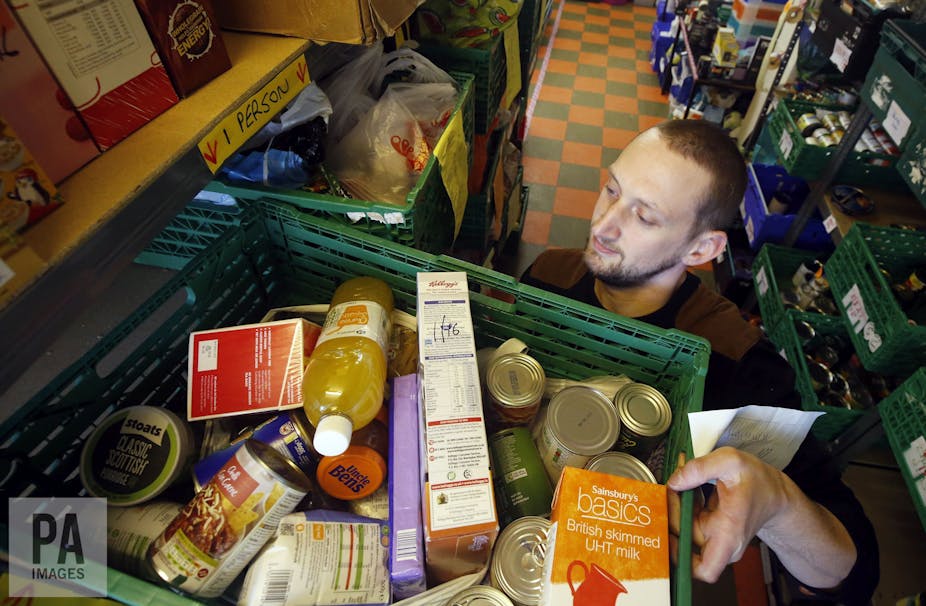Over the past four years, 700,000 more young people and pensioners in Britain have been “plunged into poverty”, according to the findings of a major new report from the Joseph Rowntree Foundation (JRF).
But there is only one thing to say with any confidence about reports like these: they are very unlikely to bring about any significant change in the government’s policy. So why do think-tanks like the JRF keep spending large sums of money producing such reports and evidence which seem to achieve so little?
Nearly half a century ago, in 1971, the eminent sociologist David Donnison wrote a review in the magazine, New Society, of yet another report about the dire state of UK housing and homelessness. He demanded that “no more reports” should be commissioned until something was done with the evidence that was already there. As he made clear, the problem was not a lack of evidence, but that little or nothing was being done about it.
In 2017, politicians and civil servants are not only failing to address social problems, they are fanning the flames of the problems poor people are facing.
It’s hardly a surprise that the JRF has found many more older people are now being forced into poverty as cuts in pension credit bite. Cuts in support for families and children and the enforced migration of many to low-paid, insecure employment explain the growing millions being brought up in penury. Already things are worse than when the JRF produced its 2016 report with similar fanfare, entitled “We can solve poverty in the UK”.
A well-rehearsed conversation
Researchers who produce ever more evidence about problems that are only too well known seem to think that by telling the government how much damage its policies are doing, it will magically stop imposing them. Or that if they show “the public” how bad things are, then “something will have to change”. But what it mostly means nowadays is that governments and their allied media dismiss such findings as the chattering of the “metropolitan classes”.
The many thousands of people whose lives are being undermined by current public policy are very aware of their own worsening problems. They don’t need telling – but they do need people to listen to them. It was only after the terrible Grenfell Tower fire that the wider public learned that local tenants had been warning of impending catastrophe for years but nobody took any notice.
Reports like the JRF’s and others are based on a model of social change that the populist political right has dismissed as paternalistic and outmoded since Margaret Thatcher led Britain in the 1980s. It is a model of change that continues to privilege self-appointed experts and elites and reduces those at the sharp end of poverty to the status of a data source at best, and at worst to being marginalised and ignored. It makes it seem as if something is only true when think-tanks or academics shout about it.
This shows no recognition nor respect for people living with problems of food poverty or poor and insecure housing 24/7 – nor does it challenge their disempowerment in any way.
New solutions from those that need them
What makes this even more frustrating is that it doesn’t have to be like this. There is an alternative and the JRF was actually a pioneer in advancing it. What’s needed is to support people in poverty to develop their own ideas and solutions for change instead of asking them how awful things are.
Towards the end of the 20th century, the JRF did this in relation to disability and disabled people. It involved disabled people, supporting the development of their own organisations and research, and helped to transform public and political understandings of disability. This was part of the movement that led to anti-discrimination legislation, and a cultural change in the perception and roles of disabled people in society – which the Conservative-led government since 2010 fought against tooth and nail in its welfare reform programme.

If organisations such as the JRF were only to commit a tithe of their income and capital to cash-starved, user-led organisations that can speak for poor people themselves, we would see the latter’s capacity immeasurably increased.
Many groups facing poverty have shown their ability to achieve change with thought-through strategies, including parliamentary, campaigning, virtual and direct action. They also provide legitimate ways of drawing on and making public their personal difficulties and hardship, without reducing it to the level of “sad stories” and statistics. Such organisations, led by users, offer much more hope for the future.
I am involved in such an organisation and network called Shaping Our Lives – its latest research provides resources to help people who access health services long-term to act as effective representatives to achieve change themselves. Such user-led organisations point the way to real alternatives to welfare reform, such as a universal national independent living service paid for from direct taxation. This is more proactive than merely focusing on the system’s failings – a very limited approach to achieving change.

